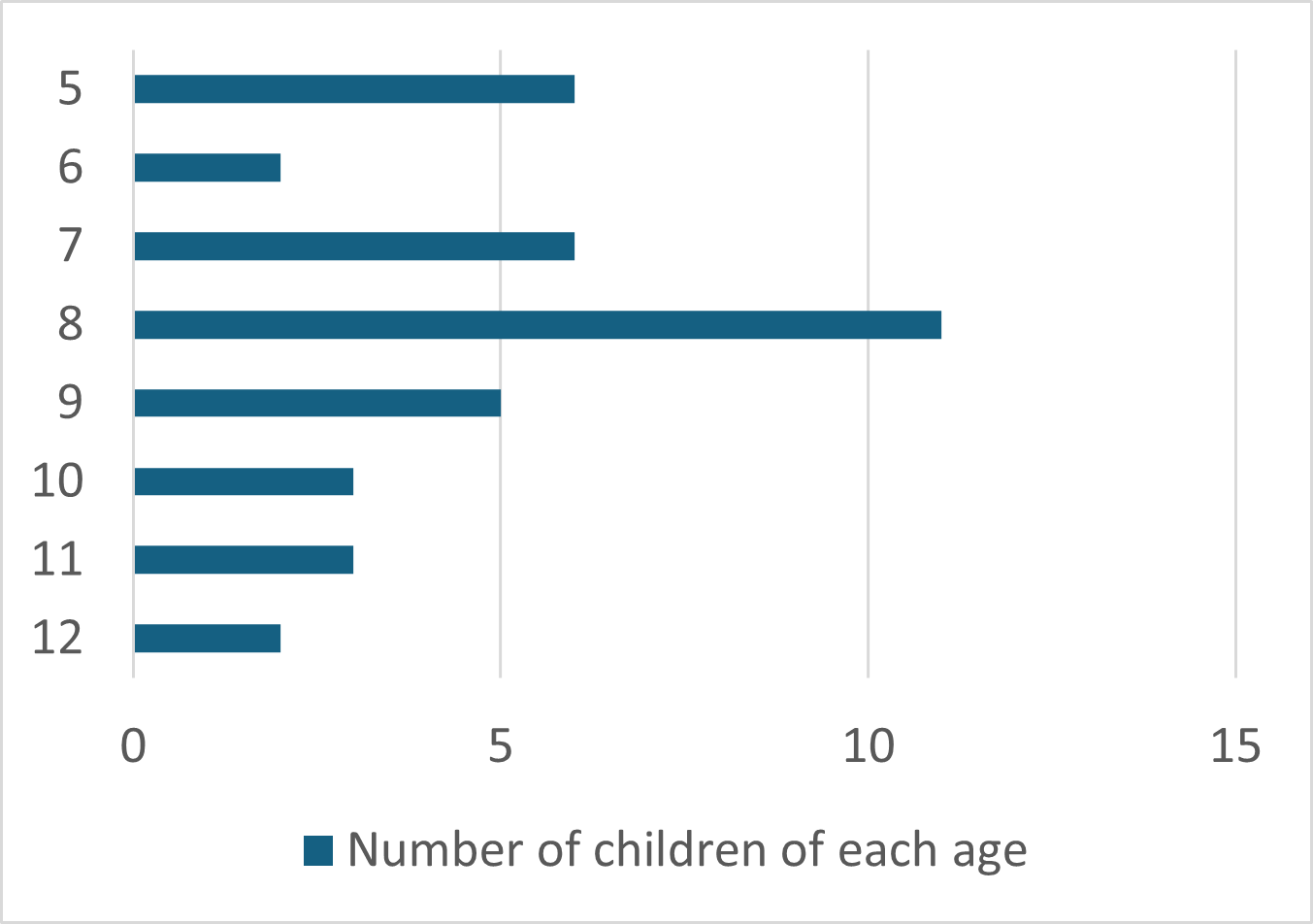38 children responded to our survey, the most common age was 8 and 74% of these children are male.

What we asked
Do you enjoy school?
68% of children said they enjoyed going to school. Reasons given for enjoying school included feeling well supported. This included with regulation, individual learning approaches and sensory needs. Having staff that understand their needs and a kind and gentle approach was important to them.
Liking their teachers helped their enjoyment of school. They also enjoyed the routine and fun lessons and activities.
70% of children had friends at school. Whether a SEN specific environment or a mainstream environment is desired for an autistic individual seems to depend on their level of support needs. Those with high support needs seem to thrive in SEN specific environments whilst those with lower support needs find mainstream environments more desirable, even if still difficult to be with other children.
32% of children said they don’t enjoy going to school. Reasons included:
- finding the work too hard
- finding the environment too noisy or busy
- too many other people
- struggling with sensory overwhelm
- the uniform being uncomfortable
- having to sit still for a long time
- not being allowed to use fidget toys to self-regulate
This caused anxiety and exhaustion. A lack of space to self-regulate also contributed to not feeling safe.
"I feel I can be myself and feel my school support me, now they understand me a bit better but sometimes the children can make fun of me for being different. The children don’t understand that much about me."
47% of children said they can be their true self at school. Feeling supported and accepted on good days and bad contributed to this, along with teachers that understand them and their needs and are proud of them, having good friends and being comfortable to speak their thoughts freely. Being able to stim (self-stimulating behaviours), run around and play freely also contributed to being able to be their true self.
37% of children said they can’t be their true self at school, they feel pressured to mask or pretend to be someone they’re not, so they won’t get into trouble or let their parents down. Other reasons included:
- feelings of worry
- embarrassment to do regulating actions in front of others
- people not understanding they find it difficult to sit still or concentrate
- not being able to use fidget toys and bullying
When we met with focus groups to assure our priorities that had been identified from the surveys autistic people told us that bullying in school also came from other autistic children. Reward systems also seemed to increase pressure - wanting rewards but feeling bad about themselves when they can't get them or lose them due to an inability to adhere to unrealistic expectations.
Things that help children be their true self included having friends and supportive and understanding teachers, more time outside, having the time and place to self-regulate and not having to sit still for too long.
What do you like doing outside of school?
35% of children said they go to after school clubs or activities. Children said they enjoyed after schools’ clubs and wanted to do what other children do although some children said they only went because their parents made them or because their parents work.
Many children did not attend after schools’ clubs giving reasons such as:
- being too tired
- not being able to handle the social interaction
- not enjoying doing the same things as other children their age and getting teased for hanging out with the younger children
Those that do attend after schools’ clubs said they needed help to join in the activities. 71% of the children that go to after schools’ clubs said they had friends there.
Children also enjoyed doing activities at home, the most common activity being watching TV, followed closely by crafting and gaming.
Outside of the home the top activities they enjoyed were swimming and going to the cinema. Many children also belonged to sports clubs (trampolining, gymnastics, football) and singing and dancing clubs.
45% of children belong to a club. This is below the national average according to the ‘Youth participation pilot survey for children and young people with long-term limiting illnesses or disabilities’ of 56%.1
97% of children who participated in a club or activity outside the home said they enjoyed it. Reasons given were because they like getting out of the house and being outdoors, being active and because it is fun.
Social anxiety and a lack of confidence in their social skills appears to be a barrier for some children attending some clubs and activities but also a barrier to enjoying the activities or school they do attend.
Children also told us they like living in Bracknell Forest as there is plenty of outside spaces, forests, parks and playgrounds to run around in. They mainly liked the Lexicon and they enjoy having things locally to do like the cinema or swimming, which was a top attraction. The best things about living in Bracknell Forest were living near other family members, their school, home, friends and being with their parents.